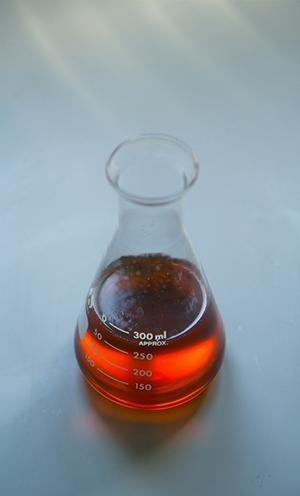What is glycerin?
Glycerin is the most important by-product of the transesterification process as it is produced in large amounts, 10% by weight of the biodiesel produced.
Glycerin is a liquid alcohol, transparent, odorless and viscous.
Traditional implementation of glycerol as feedstock or as an auxiliary material, it was as a food, tobacco, and drugs additive as well as in the composition of tri-nitroglycerin and polyurethane resins.
For large scale biodiesel producers, crude glycerol can be refined into a pure form and then be used in food, pharmaceutical, or cosmetics industries. For small-scale producers, crude glycerol is usually sold to large refineries for upgrading.
Converting crude glycerol into value-added products through thermo-chemical methods or biological methods is an alternative to utilizing this waste stream. It has been reported that glycerol can be thermochemically converted into propylene glycol, acetol, or a variety of other products


 You can see here the main
You can see here the main